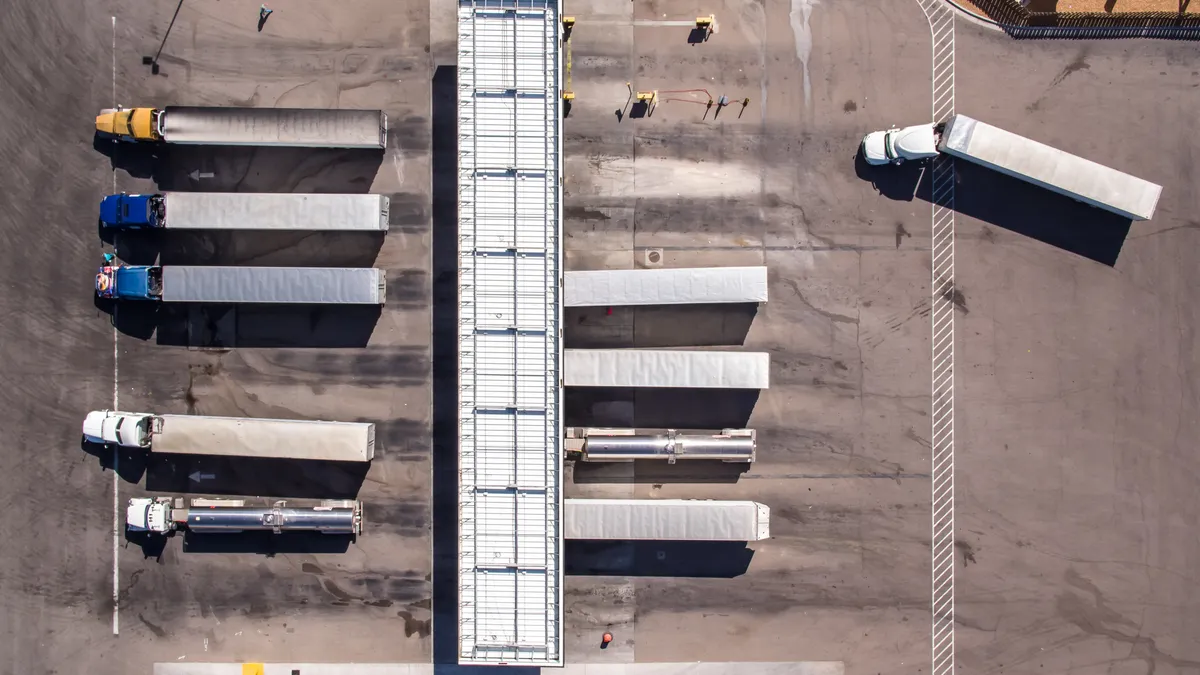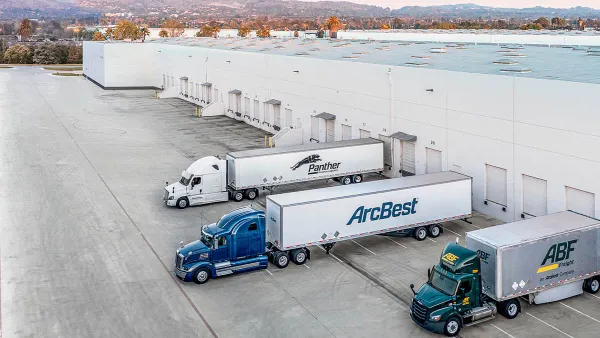As we navigate through 2024, the trucking industry continues to face a complex landscape of challenges and opportunities. While freight demand remains robust, trucking companies must contend with evolving issues that impact their operations and bottom line. Let's dive into 10 key challenges shaping the transportation sector this year.
1 - Fuel price volatility
Fluctuating fuel costs remain a persistent headache for trucking firms. Every price spike erodes profit margins and complicates cost projections. To combat this, more companies are turning to advanced Transportation Management Systems (TMS) with integrated fuel optimization tools. These systems analyze real-time data to suggest fuel-efficient routes and track consumption, helping fleets navigate the unpredictable fuel market more effectively.
2 - The ongoing driver shortage
The industry continues to grapple with a significant shortage of qualified drivers. This scarcity strains operations, potentially leading to delivery delays and lost revenue. Progressive companies are addressing this challenge by leveraging TMS solutions to enhance driver satisfaction. Improved route planning, streamlined payroll processes, and better communication tools can contribute to higher driver retention rates.
3 - AI integration in fleet management
Artificial Intelligence is rapidly transforming fleet operations, presenting both opportunities and challenges. While the transition to AI-powered systems can be daunting, many TMS providers are now incorporating AI capabilities into their platforms. This integration can optimize routes, improve load planning, and provide predictive insights, potentially reducing the workload for dispatch and driver teams.
4 - Digital transformation pressures
The industry's shift towards digital operations continues to accelerate. Companies still relying on legacy systems and manual processes risk falling behind competitors who have embraced digital tools. A comprehensive TMS serves as a bridge between traditional methods and modern digital frameworks, automating tasks and improving overall operational efficiency.
5 - Global supply chain complexities
The interconnected nature of today's global supply chain presents unique challenges for trucking companies. Disruptions in one part of the world can have far-reaching consequences, as evidenced by recent global events. While trucking firms can't control all aspects of the supply chain, utilizing a TMS can enhance visibility into business health and help navigate uncertainties more effectively.
6 - Cybersecurity imperatives
As the industry becomes increasingly digitized, the threat of cyber-attacks looms larger. Trucking companies must prioritize digital security to protect sensitive data and ensure uninterrupted operations. While a TMS can provide additional security measures, companies must implement comprehensive cybersecurity practices across all levels of their business.
7 - Real-time tracking demands
Modern customers expect constant updates on their shipments, putting pressure on trucking companies to provide real-time tracking capabilities. Firms unable to meet these expectations risk losing business to more technologically advanced competitors. Many TMS solutions now offer integration with third-party tracking providers and EDI functionality, enabling companies to meet these demanding customer expectations.
8 - Regulatory compliance
Regulatory compliance remains a significant challenge for the trucking industry. Evolving regulations around emissions, hours of service, and safety standards require constant vigilance and adaptation. A robust TMS helps companies stay compliant by automating record-keeping and providing up-to-date regulatory information.
9 - Sustainability pressures
The industry faces pressure from regulatory demands and customer expectations to adopt sustainable practices. Companies are investing in alternative fuel vehicles, optimizing routes for fuel efficiency, and implementing eco-driving training to reduce carbon footprint. These initiatives enhance corporate reputation and lead to cost savings, but the transition presents high initial costs and necessary infrastructure improvements, requiring firms to balance sustainability with operational efficiency.
10 - Economic uncertainties
The trucking industry is highly sensitive to economic fluctuations, making it vulnerable to market shifts. Recent years have highlighted this sensitivity, with potential recession fears impacting freight demand and pricing dynamics. Economic indicators such as GDP growth, consumer spending, and manufacturing output directly affect shipping volumes and rates. To navigate this uncertainty, trucking companies must diversify their client base, optimize operations, and maintain financial flexibility.
The trucking industry in 2024 faces numerous challenges, including fluctuating fuel prices, driver shortages, and the need for technological adaptation. Companies can navigate these obstacles effectively and stay ahead by utilizing advanced tools and embracing digital transformation.
About TransPlus
For nearly 30 years, TransPlus has provided a comprehensive trucking software solution to transportation carriers, helping customers automate, streamline, and optimize their operations. Over the years, we’ve gained the trust of satisfied trucking and brokerage customers across North America. Our software is designed to cater to truckload and LTL carriers, specialized haulers, logistics companies, as well as freight and produce brokers.
Learn more on our website: www.transplus.io










